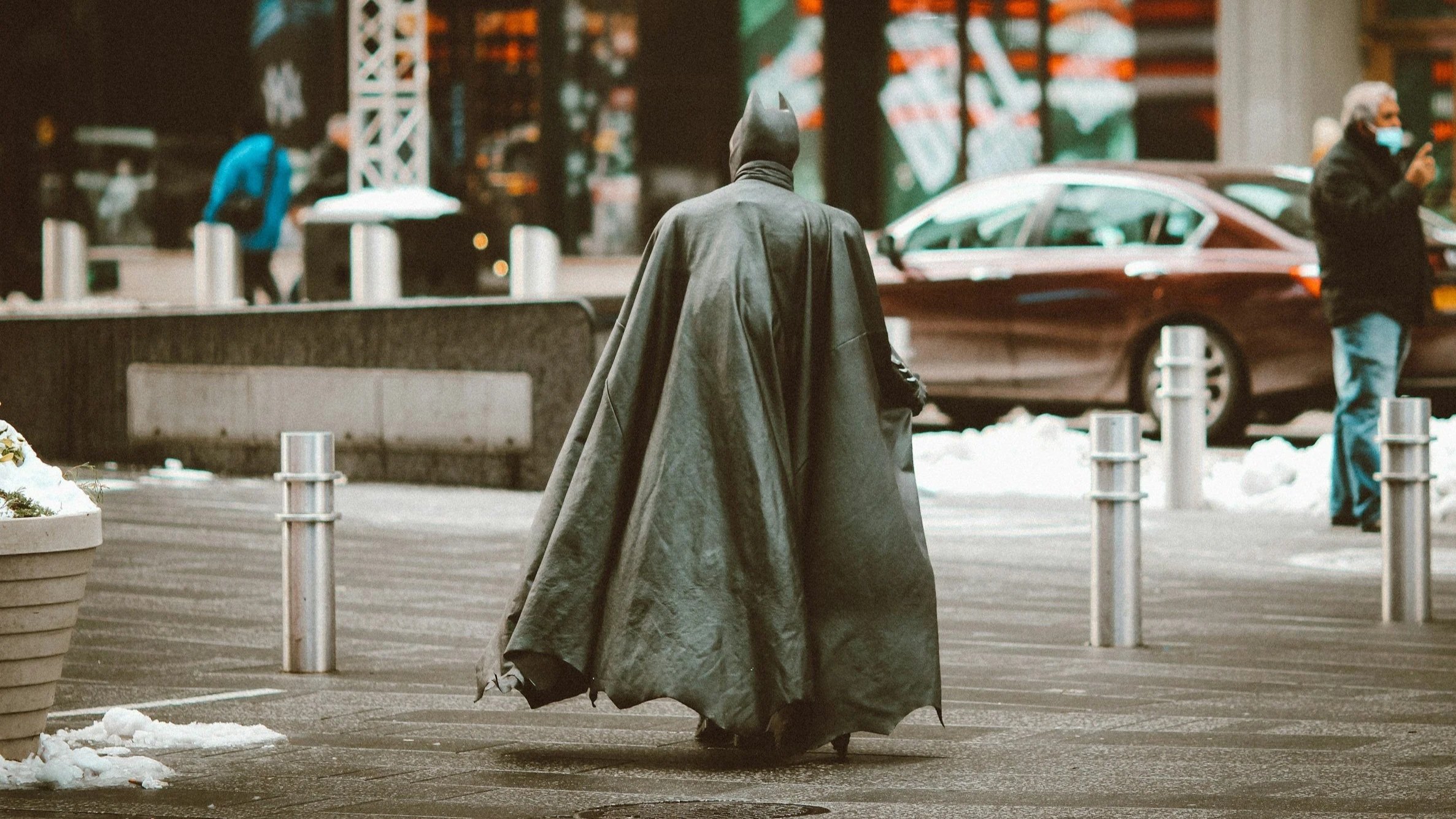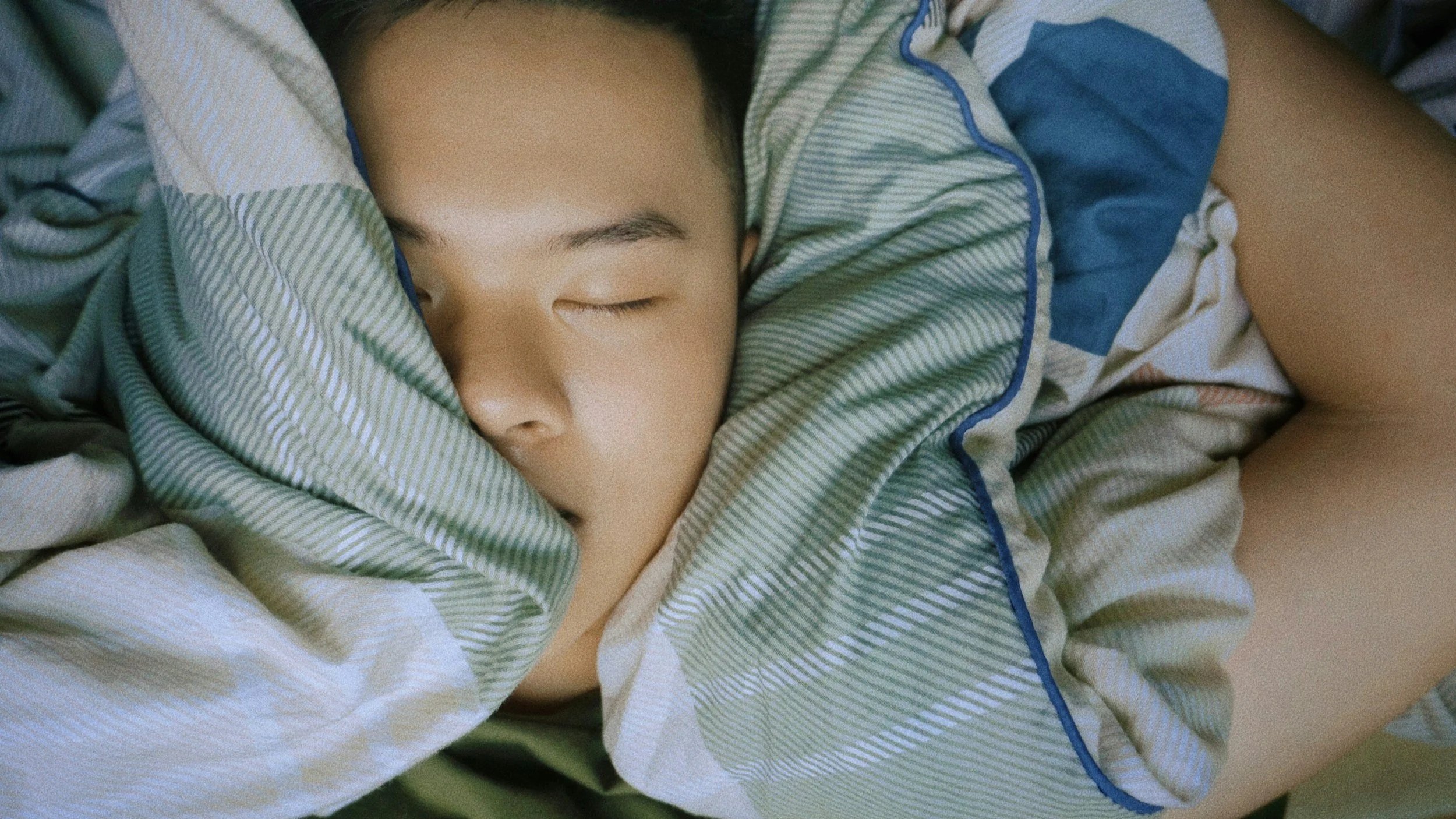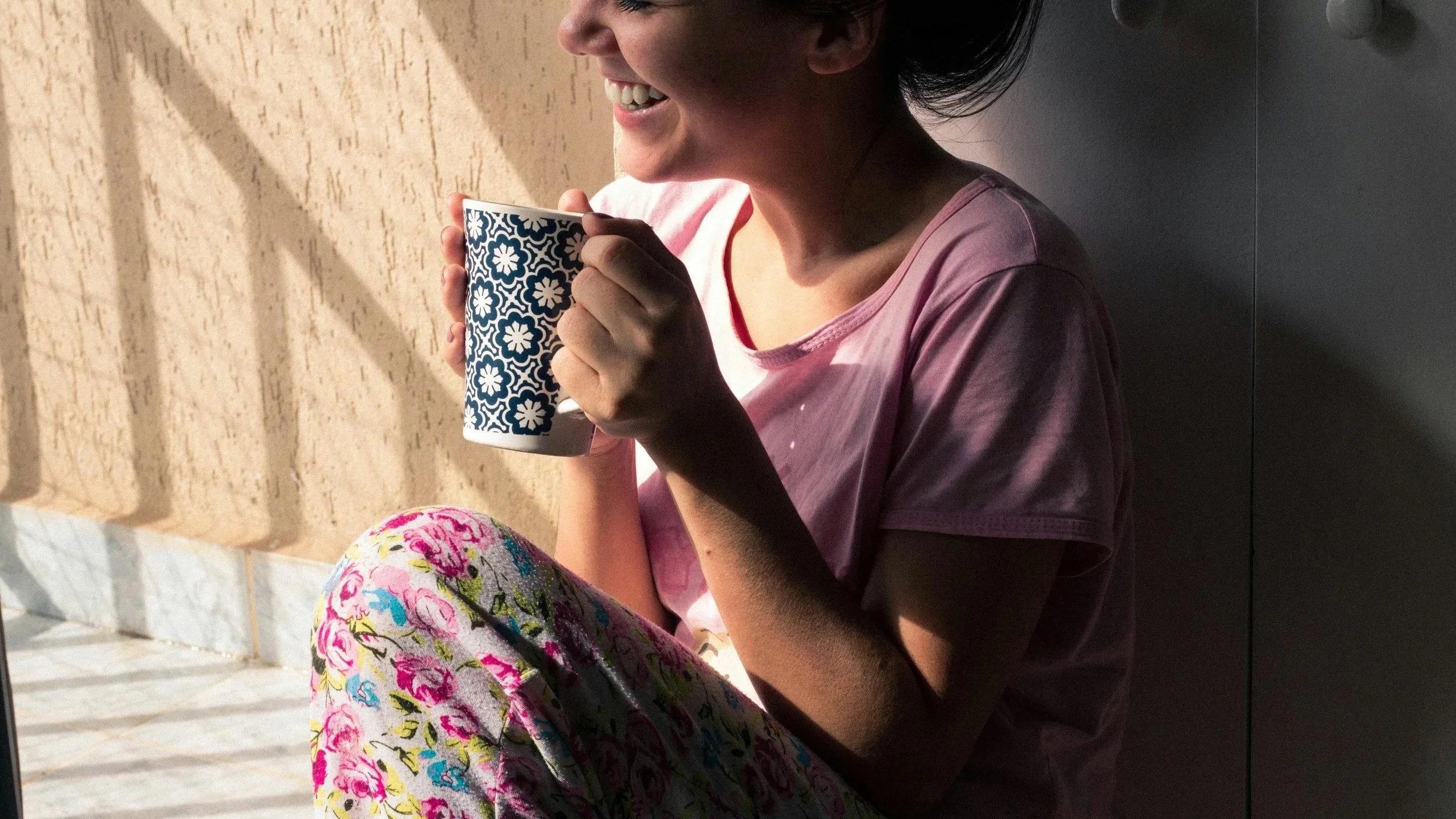The Batman Effect: How a Costume Boosts Kindness
A person dressed as Batman can change people’s behavior for the better, as a field study has shown. Photo: Jon Tyson (Unsplash)
Tada-dada, tada-dada, tada-dada, tada-dadada – Batmaaaan!
That iconic Batman sound is almost as famous as the comic hero himself. And it turns out that Batman can even change people’s behavior, without them realizing it.
At least that’s what a study in the Milan Metro suggests. When Batman stepped into a crowded subway car, passengers reacted in a noticeably positive way. In the experiment, a pregnant woman was offered a seat far more often when a person dressed as Batman stood nearby. And remarkably, most of those who gave up their seat didn’t consciously notice Batman at all.
The study, published in npj Mental Health Research, shows how an unexpected stimulus can break through routine and refocus attention. Suddenly, we see the people around us more clearly, and we’re more likely to help.
In the Milan Metro experiment, only 37 percent of passengers offered a seat to the pregnant woman under normal conditions. But when Batman boarded alongside her, that number jumped to 67 percent.
Interestingly, those who gave up their seat later explained their actions in terms of social norms, upbringing, or safety. None linked their behavior to Batman’s presence, and nearly half (44 percent) even claimed they hadn’t noticed him at all.
Mindfulness: Awake in the Moment
The researchers emphasize that unexpected stimuli act like mini mindfulness triggers. On trains or trams, people often slip into autopilot, scrolling on their phones or staring blankly ahead. A surprising cue – like someone dressed as Batman – interrupts that routine, redirects attention, and makes us more aware of others’ needs. It’s a moment of mindfulness: being present, here and now.
The team suspects Batman is especially effective because of his symbolic role. In the comics, he stands for courage, justice, and helping others. Future experiments could test whether other costumes or interventions spark similar prosocial effects.
Social Norms in Everyday Life
The Batman experiment was the first of its kind, but similar studies have used signs instead of costumes. In a series of trials published in Frontiers in Psychology, researchers placed small prompts to encourage certain behaviors. Sometimes it worked: people used fewer paper towels or were more willing to recycle. The effect, they argue, comes from our tendency to follow group expectations. Yet not all nudges succeed – a sign encouraging stair use instead of the elevator had little impact.
Intuition vs. Reflection
Another field experiment asked whether people are more likely to help when acting on instinct or after deliberation. The results, published in PLOS One, were striking: spontaneous, intuitive decisions led to more helping behavior, while careful reflection often reduced it. The first, unconscious reaction seems to play a crucial role in whether we step in to assist. In fact, overthinking can block kindness altogether.
Kindness Makes Us Happier
Positive psychology views helping others as a powerful practice for boosting life satisfaction. A recent review confirmed the link between prosocial behavior and happiness. Across multiple experiments, people who regularly performed small acts of kindness not only supported others but also improved their own well-being. The effect is double: kindness generates positive emotions and strengthens our sense of connection to the world around us.
Everyday Tips
Kindness can be trained. Simple exercises help us break out of autopilot and notice our surroundings more consciously.
Break routines: Take a different route to work or shop in a new way – it opens your eyes to others.
Practice micro-gestures: Hold the door, smile, help carry something, give a compliment, offer your seat.
Train kindness: If it doesn’t happen spontaneously, plan one small helpful act each day until it becomes habit.
Build mindfulness: Pause, breathe, and look around. Notice who might need support.
Go digital: Answer questions in a forum or write honest product reviews that help others.
Self-care matters: Rest, sleep well, forgive yourself, and reward yourself. Energy fuels kindness.
Every small act of kindness works twice: it helps someone else and lifts your own mood.
Sources
Batman Study: Pagnini, F., Grosso, F., Cavalera, C., Poletti, V., Minazzi, G. A., Missoni, A., Bogani, L., & Bertolotti, M. (2025). Unexpected events and prosocial behavior: the Batman effect. npj Mental Health Research, 4(1), 1–4. DOI: 10.1038/s44184-025-00171-5
Social Norms in Everyday Life: Mundt, D., Batzke, M. C. L., Bläsing, T. M., Gomera Deaño, S., & Helfers, A. (2024). Effectiveness and context dependency of social norm interventions: five field experiments on nudging pro-environmental and pro-social behavior. Frontiers in Psychology, 15, Article 1392296. DOI: 10.3389/fpsyg.2024.1392296
Intuition vs. Reflection: Grehl, S., & Tutić, A. (2022). Intuition, reflection, and prosociality: Evidence from a field experiment. PLOS ONE, 17(2), e0262476. DOI: 10.1371/journal.pone.0262476
Kindness and Happiness: Proulx, J. D. E., Castaneto, K. K., Cash, T. A., & Aknin, L. B. (2025). A narrative review of the consistency, rigor and generalizability of experiments on prosocial behaviors and happiness. Discover Psychology, 5, Article 10. DOI: 10.1007/s44202-025-00327-6
Get your weekly dose of good news every Wednesday morning. We'll send you all the new Happy Spot articles with quick summaries, along with the week's top headlines featuring good news worth reading.









